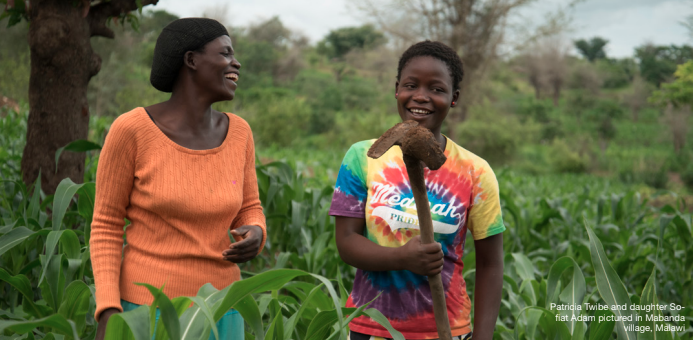Participants on a major Self Help Africa project in Malawi are three times more likely to be eating a more balanced diet than those not involved in the work, a new report has found.
A sample study of over 300 people who received Farmer Field School training in Malawi showed that basic dietary diversity was far more likely to be reached by those involved in the programme, which is a key part of the EU-backed BETTER Project in the southern African country.
The survey was conducted with 225 people who had worked on BETTER and 76 from the same communities who were not involved with the programme.
The project seeks to inform participants of the links between food production, improved eating practices and a healthier, more diverse diet.
Training also covered a range of topics including the six main food groups, the links between water, hygiene, sanitation and health, as well as on activities such as homestead farming and food processing.
People who took part in BETTER were also more likely to adopt Water, Sanitation and Hygiene (WASH) practices compared with other people in the locality who did not take part, the report concluded.
The report also found that men were less likely than women to prepare food, but were more likely to be involved in food processing activities that generated a potential income, including juice making.
The objective of the BETTER programme is to increase the resilience, food, nutrition, and income security of 402,000 smallholder farmers in Malawi through 13,400 Farmer Field Schools (FFS). The program is now in its fourth year.

